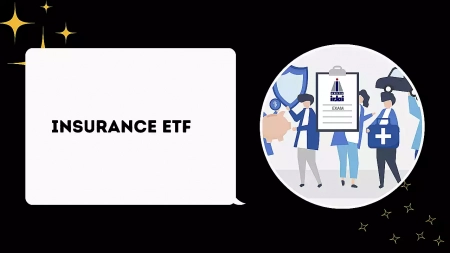Insurance Exam – How to Register for an Insurance Exam
An insurance exam is a standardized test administered by regulatory agencies or insurance companies to those wishing to become licensed insurance agents or brokers.
READ ALSO: Insurance ETF – What are the Benefits of Investing in Insurance ETFs
These tests check the candidate’s knowledge of insurance principles, policies, regulations, and ethical standards. It covers a range of topics including insurance basics, types, sales and marketing as well as claims handling.

What is an Insurance Exam?
To be licensed to sell insurance products, a person must pass an exam called an insurance exam. Depending on the area and the kind of insurance one wants to sell, the exam’s specifications may change.
Many places, such as the US and Hong Kong, have separate portions or “papers” for the test, each of which focuses on a distinct facet of insurance.
You must pass an insurance license exam in each state where you wish to obtain a license in the United States because these exams are state-specific. The test consists of multiple-choice questions covering both federal and state content.
Exam costs, formats, and scoring are subject to change. Passing the insurance licensing exam requires preparation, and for many, enrolling in a pre-license education course is the best way to do it.
Types of Insurance Exam
Here are some common types:
- Life insurance license exam: This exam assesses your understanding of life insurance regulations and policies.
- Health insurance license exam: This exam concentrates on health insurance policies, encompassing both public and private insurance.
- Property and casualty insurance exam: This test includes issues about liability insurance as well as insurance for properties, such as cars and homes.
These tests cover both general and state-specific content. While the state-specific questions assess your knowledge of the rules and regulations about insurance that you must be aware of to practice as an insurance agent, the general questions assess your knowledge of federal insurance products and agent duties.
YOU MAY LIKE: Insurance for Self-employed – Top Insurance Options for Self-employed
Importance of Insurance Exam
This exam is crucial for individuals who are pursuing a career in the insurance industry. The importance include:
- Access to Opportunities: Passing insurance examinations can lead to highly sought-after jobs at respectable insurance firms like LIC, NIACL, NICl, OICL, UIIC, and IRDA. Passing these tests offers opportunities for solid, financially rewarding careers.
- Equipping Professionals: The tests guarantee that those employed in the insurance sector have the requisite knowledge and abilities. Because of their preparation, they can offer their clients sound advice and services while upholding the greatest levels of professionalism.
- Certification and Training: Exams that certify and train applicants in various facets of the insurance industry are administered by organizations such as the Insurance Institute of India (III). The Indian insurance business highly recognizes and accepts these tests since they assess applicants’ understanding of insurance products, rules, and procedures.
- Underwriting Process: An essential part of the underwriting procedure is the insurance exam. The outcomes are used by insurers to calculate the risk involved in providing insurance to people or things. This data assists insurers in determining the right coverage and premium amounts for their customers.
Insurance exams are more than just evaluations; they are a necessary first step toward achieving professional success in the insurance industry.
Where can I Take the Insurance Exam?
If you decide to take your exam in person, you will do it in any of your state’s testing service centers. Based on your state, this can be:
- Pearson VUE: 24 states and Washington D.C.
- Prometric: 11 states.
- PSI: 13 states.
You can navigate to your state’s administrative webpage.
How to Register for an Insurance Exam
Follow these steps to register for an exam:
- Go to the Pearson VUE website at https://home.pearsonvue.com/il/insurance and create an account if you haven’t already. Make sure to use your legal name exactly as it appears on your official identification document.
- Enter your login credentials to access the account you just created.
- Find the insurance exam that you wish to take on the webpage.
- Choose if you are eligible for an online proctored exam or if you would like to take the test in a local testing facility. With live proctor monitoring via webcam, you can take the exam online while lounging in the comfort of your home or place of business.
Schedule your exam when you’ve decided on the test and format. You have two options for doing this: online or by phone with customer support. Subject to availability, appointments can be arranged up to one calendar day in advance of the day you want to test.
Frequently Asked Questions
Below are some frequently asked questions.
What is the Cost of an Insurance Exam?
In general, an insurance exam can range from $40 to $150, depending on the type of exam and the state in which you are applying.
What is a Passing Score for an Insurance Exam?
States and types of insurance licenses can have an impact on the passing score for an insurance exam, but generally speaking, it is approximately 70%. For instance, to pass the insurance license exam in South Carolina, you must receive a score of 70% or higher. In California, the passing score is slightly lower at 60%.
What is the Purpose of Taking an Insurance Exam?
Regulating bodies mandate insurance tests to make sure that people who sell insurance products are educated about the market and qualified to give customers advice and information.
Conclusion
Depending on the kind of insurance license being applied for and the legal requirements of the jurisdiction in which the exam is being given, the precise structure and substance of insurance exams may change.
Candidates must pass the insurance exam, to get a license and be able to sell insurance products lawfully within their jurisdiction.
